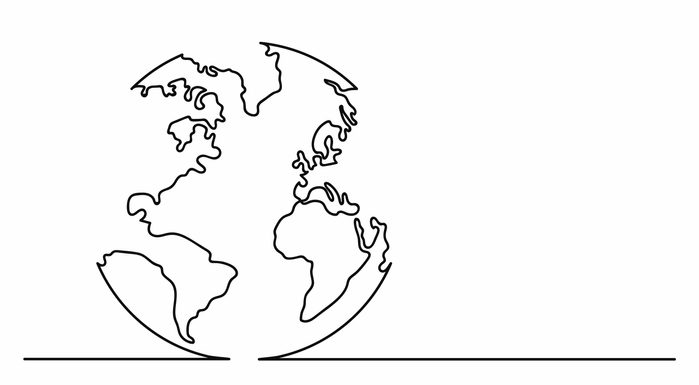For many people, globalization is one of the scourges of modern life.
It’s why the shops in the high street all look the same, wherever you go.
It’s why McDonald’s is everywhere.
It’s why the shop in the high street are closing down.
It brought us the global financial crisis.
It helps multinational corporations avoid tax while the rest of us slave away to pay our share.
It allows big tech to run rings round governments and regulators.
It funnels dark money to influence elections and undermine democracy.
It enables rich countries to profit from exploiting natural resources, while poorer countries are left to pay the price.
It stalks the earth like an invisible Godzilla, leaving death and destruction in its wake, trampling our certainty and security to bits.
Now, I’m not going to minimise the impact of any of this, and you won’t be surprised to hear I’m not promising to solve it all in this article. But I’d like to suggest that there’s more than one version of globalization.
The problems I’ve described are mainly a result of what we could call Big Globalization – the version that has brought us multinational corporations and a global culture where everywhere starts to look and feel the same.
But if we contrast Big Globalization with Small Globalization we can also find plenty of benefits for us as creatives.
Small Globalization makes the world smaller, more intimate and more creative.
The world wide web connects us all, making it easier to connect, collaborate and create together.
You can educate yourself in just about any conceivable skill by searching on the web and reading articles, watching videos, listening to podcasts, buying books or courses, or hiring someone to teach you.
You can research and buy the absolute best equipment for doing your creative work, often at a fraction of the price it would have cost you a few short years ago.
You can work remotely if you want to, spending less time commuting and more time creating.
You can hire all kinds of contractors to help you get more done in less time, and to access skills that you don’t have – including virtual assistants, web developers, designers, editors, producers, composers, and all kinds of consultants.
You can find readers, listeners and viewers all over the world, growing an audience for your work and making a difference to many more people than you could have done in the old world of local networks and traditional media channels.
If you’re in business, you can become a super-specialist, doing the thing that you love the most, and succeed by finding clients or customers who are spread far and wide. Like the fourth generation knife maker on a remote Scottish island, who Patricia van den Akker told us about in Season 2 of The 21st Century Creative, who creates hand-made knives and sells them to top chefs worldwide.
In many creative fields you can live wherever you want, as long as there’s a reliable internet connection, giving yourself and your family the kind of lifestyle you want, while selling your work to customers on the other side of the world.
I could go on, but hopefully you get the point that this kind of Small Globalization is changing our lives as creatives for the better.
So is globalization good or bad? The answer, of course, is yes.
Yes it’s good. And yes it’s bad.
As I said way back at in Episode 2 pf The 21st Century Creative podcast, the 21st century is the best and worst of times to be alive and to be creative.
Globalization is a two-edged sword – you can’t have the upside without the downside. And it’s here to stay. We aren’t going to stop it, so let’s see what we can make of it.
As I said in Episode 2, one of the golden rules for 21st century creatives is: No complaining! Because complaining saps our energy, kills our creativity and makes us less effective.
So focus on what you can affect, and what opportunities you can take advantage of.
Even when it comes to Big Globalization, there are things you can do to make a difference. Vote for politicians who are part of the solution, not part of the problem. Spend your money with companies who are aligned with your values, and don’t buy from the others.
Maybe there’s even more you can do – who would have thought a schoolgirl from Sweden could make such a contribution to the global conversation about climate change?
And when it comes to your creative career, remember another principle from Season 1 of the podcast: Stay small, go global.
Take advantage of Small Globalization to hone your skills, make the work that only you can make, and find the people who will love it the most and help you the most – wherever you are and wherever they are in the world.
You can hear an audio version of this article in this episode of The 21st Century Creative podcast, starting at 3’34”.

